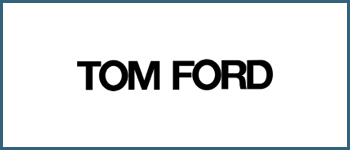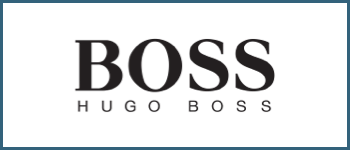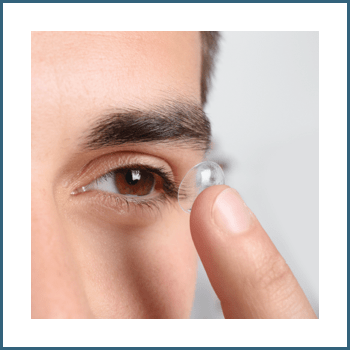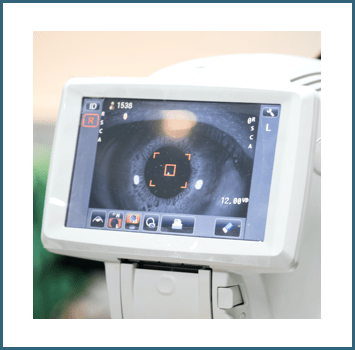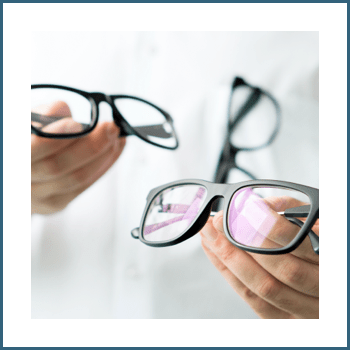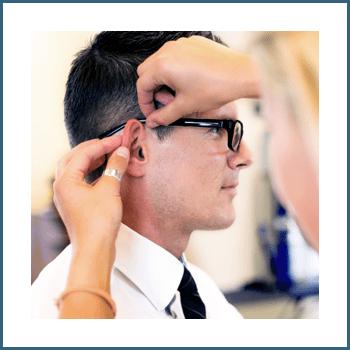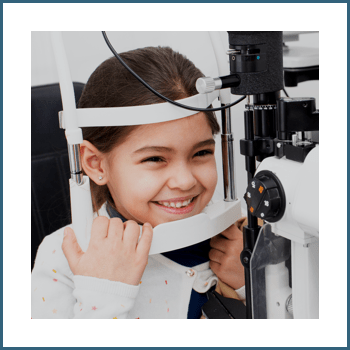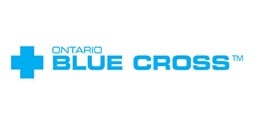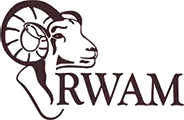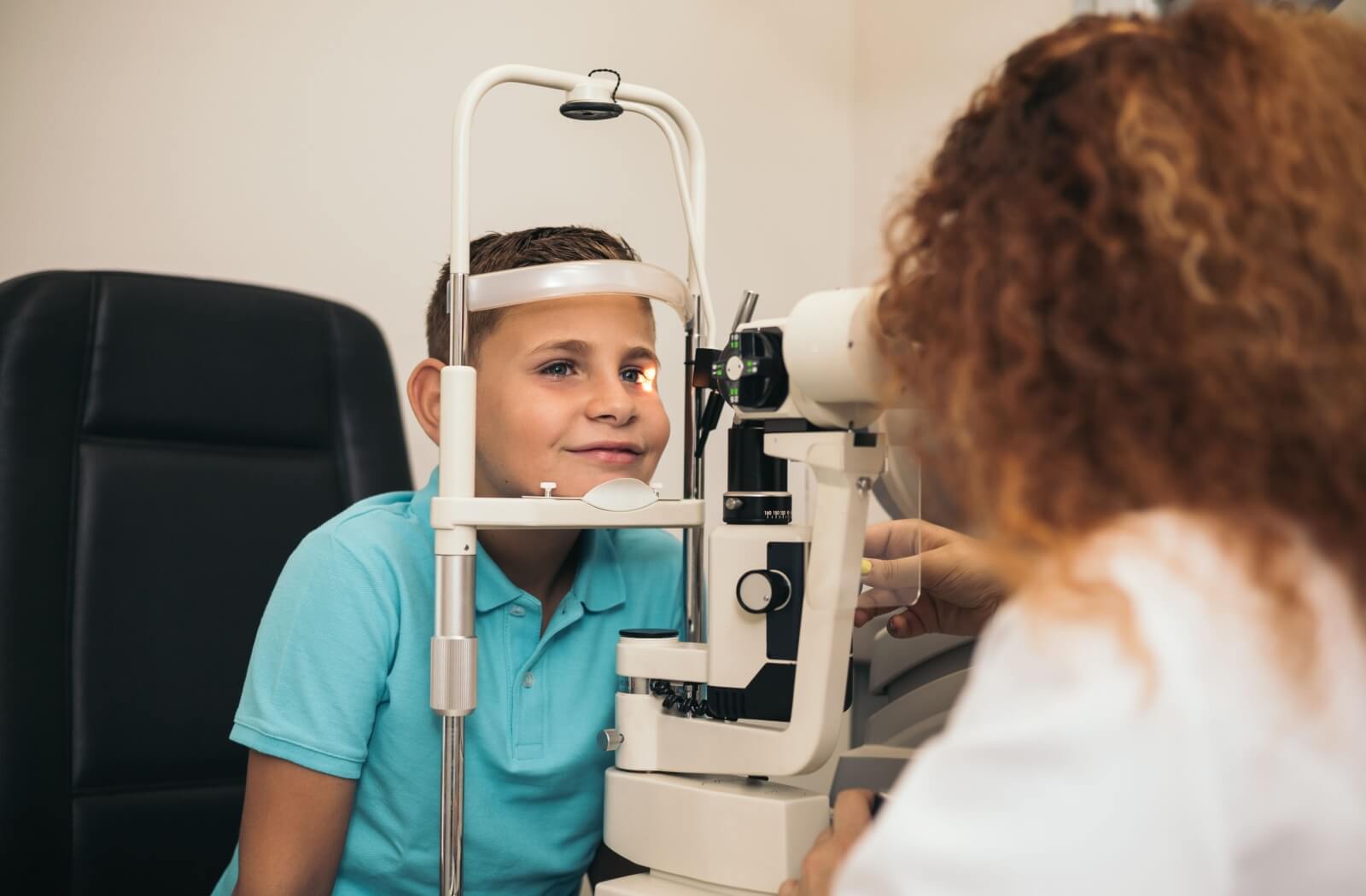If you’re tired of wearing glasses and considering switching to contact lenses, or maybe you’re already a seasoned contact lens wearer and want to learn more about the fitting process, you’ve come to the right place.
Contact lenses have revolutionized how we see and experience the world, providing a convenient and comfortable alternative to traditional eyeglasses. However, before being fitted for contact lenses, it’s essential to understand what goes into this process, the duration of the exam, and why it’s crucial for your eye health.
The stages of a contact lens fitting maying include:
- Consulting with an optometrist about medical history and concerns
- Contact lens fitting eye exams and evaluations
- Education and instructions on how to insert, clean, and store contacts
- Testing trial lenses
- Continued follow-up and care
Discover all things related to contact lens fittings, from what happens during an appointment with your optometrist to how they determine which lens type is meant for your unique needs.
What to Expect During a Contact Lens Fitting Appointment
A contact lens fitting appointment aims to determine the type, size, and fit for your eyes. This is important because wearing improper or ill-fitting contact lenses can lead to discomfort, irritation, and even potential eye damage.
During the appointment, your optometrist may first conduct an initial exam to assess the overall health of your eyes. They may also ask about any previous eye conditions or allergies you have had to better understand your eye health history. This will help them determine which contact lens material and solution may work for you.
Consultation with Optometrist
At the beginning of your contact lens fitting appointment, you will have a consultation with your optometrist. This is where they will ask about your vision needs and any activities or lifestyle factors that may affect your contact lens choice (e.g., sports, outdoor activities, etc.). They may also ask about any medical history that could impact your eye health or suitability for contact lenses.
Exam
During a contact lens fitting appointment, several steps and tools may be used to provide a good fit and prescription for contact lenses. Some steps that may be involved in the process include:
- Thorough eye examination: The contact lens fitting process begins with a comprehensive eye examination. This includes reviewing your health history and conducting standard eye tests to assess your visual acuity and overall eye health.
- Corneal measurement: To determine the proper fit of contact lenses, the curvature of your cornea is measured. This can be done using handheld equipment such as a keratometer or other methods. The corneal measurement helps make sure that the contact lenses fit comfortably and provide effective vision correction.
- Pupil size evaluation: Evaluating the size of your pupils is another crucial step in a contact lens fitting appointment. This measurement helps determine the appropriate size and type of contact lenses for your eyes.
- Tear film evaluation: Your optometrist may also evaluate the quality and quantity of your tear film. This assessment helps determine if you have any underlying dry eye conditions that may affect your comfort while wearing contact lenses.
- Lifestyle and preference consideration: Your lifestyle and personal preferences regarding contact lenses will be considered. Factors such as your job, hobbies, and desired wearing schedule will help determine the most suitable type of contact lenses for you.
It’s important to note that the specific steps and tools used during a contact lens fitting appointment may vary slightly depending on your needs. It is recommended to consult with your optometrist for a personalized assessment and fitting experience.

Education & Care Instructions
In addition, proper care and maintenance of your contact lenses are crucial to prevent any potential eye infections or complications. Your optometrist may outline a recommended cleaning routine for your specific type of contact lenses, including daily disinfection, storage in a clean case, and replacement time according to their expiration date. Depending on your chosen clinic, you may also be given a contact lens training session to help you learn how to insert and remove your lenses safely and proper care techniques.
Testing Trial Lenses
Your optometrist may provide trial lenses after gathering all the necessary information and measurements and determining eligibility. This is an important step as it allows you to see how the contact lenses feel and perform in real-life situations. Your optometrist may also have you wear them for a certain amount of time before returning for a follow-up appointment to make sure they are the right fit.
Continued Follow-Up & Care
Once you have found the perfect fit, your optometrist may schedule regular follow-up appointments to monitor your eyes and determine if the contact lenses are still working well for you. It is essential to attend these appointments and follow any instructions given by your optometrist to maintain healthy eyes and optimal vision.
Take the Next Step Toward Clearer Vision
Take charge of your eye health by scheduling an appointment today. Our top priorities here at Westmount Optometrists are your comfort and safety, and we are committed to providing you with the best care possible. Don’t wait any longer to experience the freedom and convenience of contact lenses. Book an appointment today.





